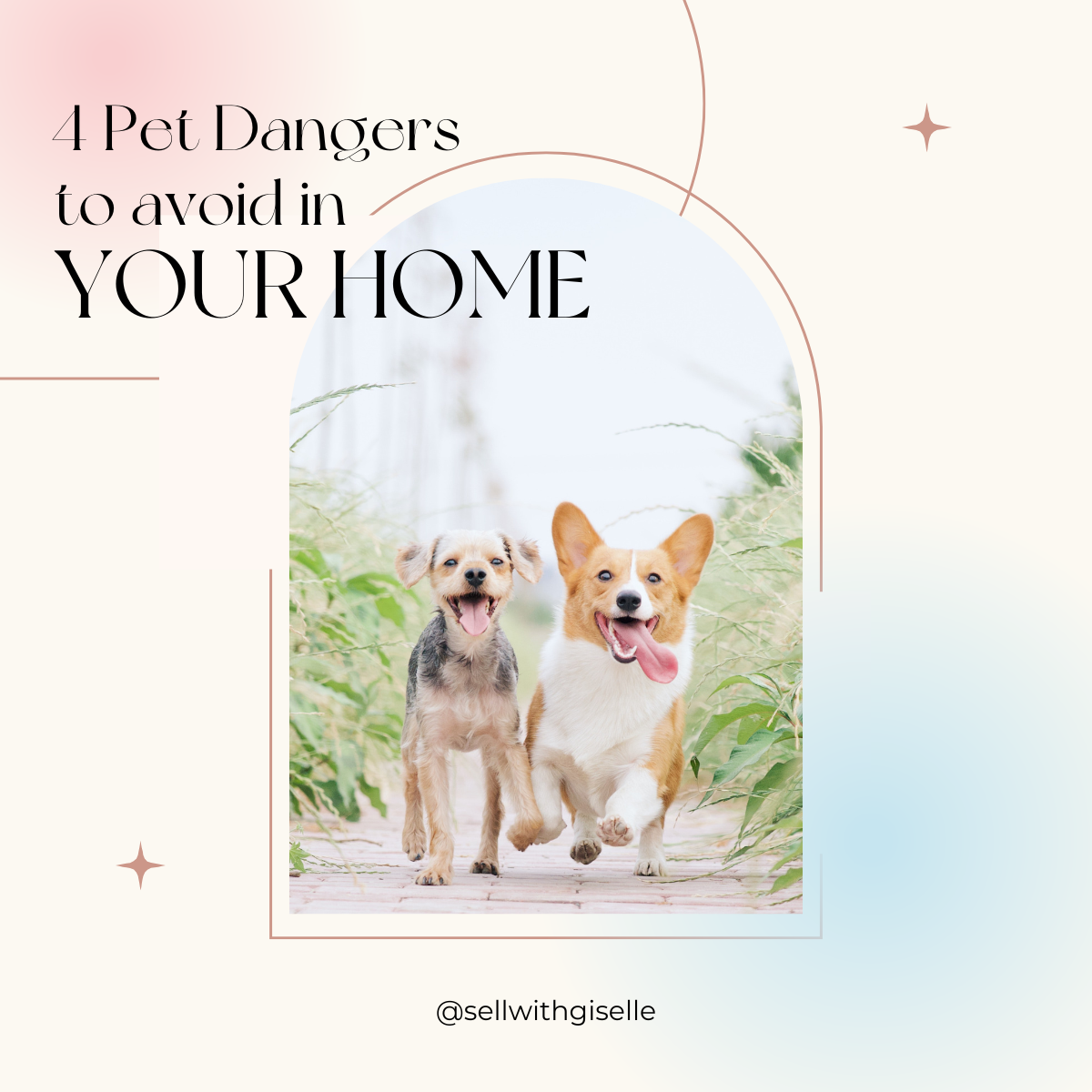We know everyone wants to keep their pets safe, so you might be shocked by the potential pet hazards you have hiding in your home! Cats and dogs are curious animals and tend to get into things (Ted certainly is! 🐶 ), so nothing is foolproof, but there are some easy precautions that you can take to make it less likely that your pets will find something that they shouldn’t! Here’s what to keep out of paws’ reach + information on what to do if your pet is accidentally exposed to a toxin:
Crucial Poison Info
First things first: If you suspect your pet has ingested any poisonous substances, contact your veterinarian or call the hotline for ASPCA Animal Poison Control Center (AAPCC) at 888-426-4435 immediately. You’ll need to provide your pet’s breed, age, weight, and health history, as well as what symptoms they’re exhibiting.
Danger No. 1: Human Medicine
Over-the-counter medications, prescriptions, vitamins, and supplements ranked as the top toxins in 2020 for the third year in a row, making up about 17% of APCC’s total case volume. A quick tip to avoid finding yourself in this situation? Take all medications behind a closed door. Why? That way a the pill is dropped, you’ll have time to search for it without having to worry about your pet finding it first!
Danger No. 2: Edible Hazards
Human foods made up 13% of 2020’s total toxicity cases at APCC, with most calls about grapes, raisins, xylitol (a sugar substitute), onions, garlic, protein powder, and snack bars. Yeast dough is another danger, as is chocolate, coffee, and caffeine, as well as alcohol, avocado, leeks, chives, and macadamia nuts.
Danger No. 3: Non-Edible Hazards
Most homeowners have toxic items lying around their garage and home. Think items such as antifreeze, insecticides and pesticides, pool chemicals, and lawn fertilizer—all of which can be a significant hazard to your pets! Keep everyone in your home safe by storing all pesticides and cleaners in high cabinets with a childproof lock. A few non-garage items to keep in mind are toothpaste, sunscreen, hand sanitizer, and fabric softener sheets – all best kept out of snout’s reach!
Danger No. 4: Plants and Flowers
The APCC received 9,000 more calls in 2020 than the previous year for pet plant consumption. All plants and flowers should be kept out of reach from your pet to avoid any issues. Some plants that are pet safe? Try non-toxic options such as African violets, roses, or spider plants. The Sill has some great pet-safe plant bundles, too!




